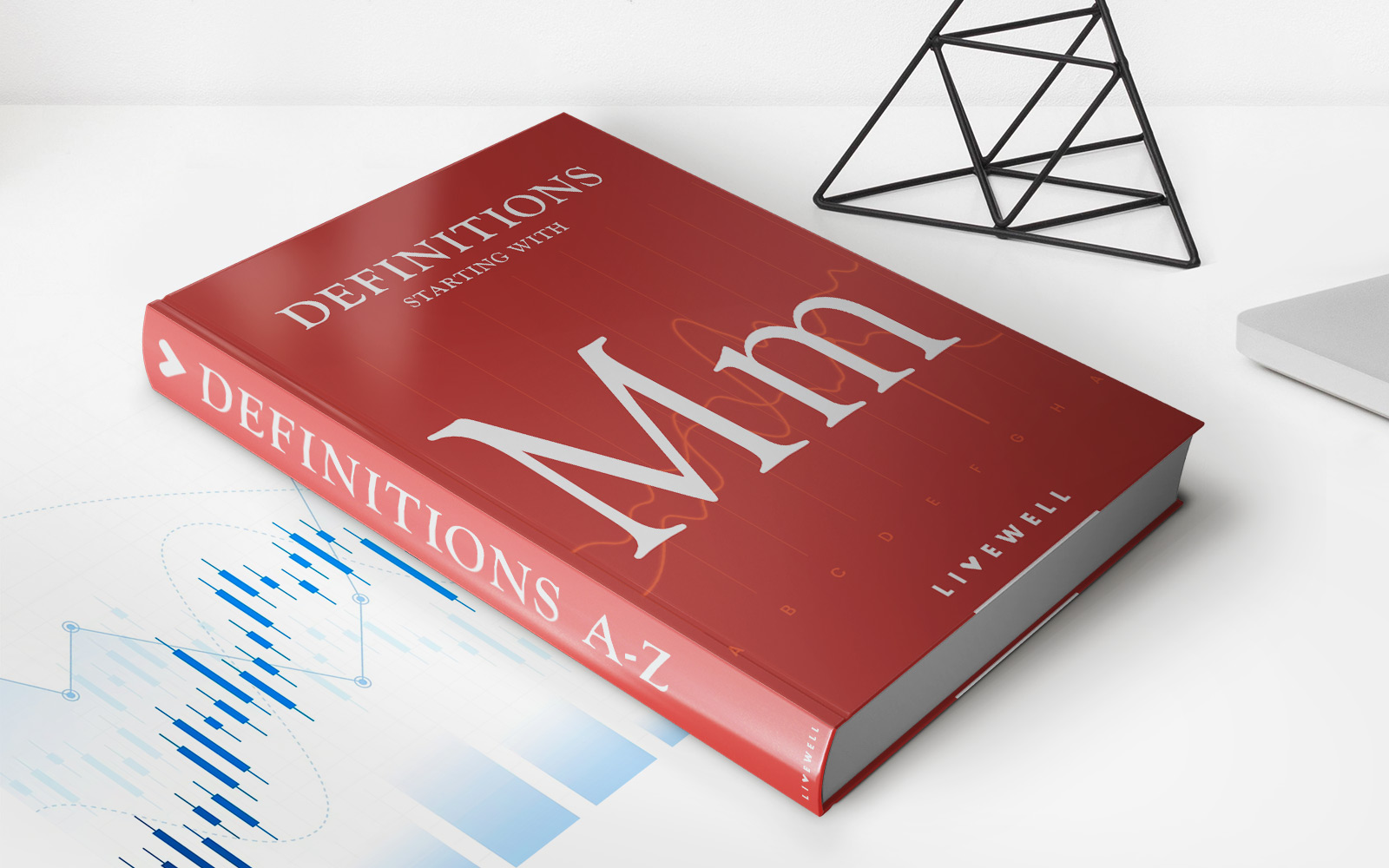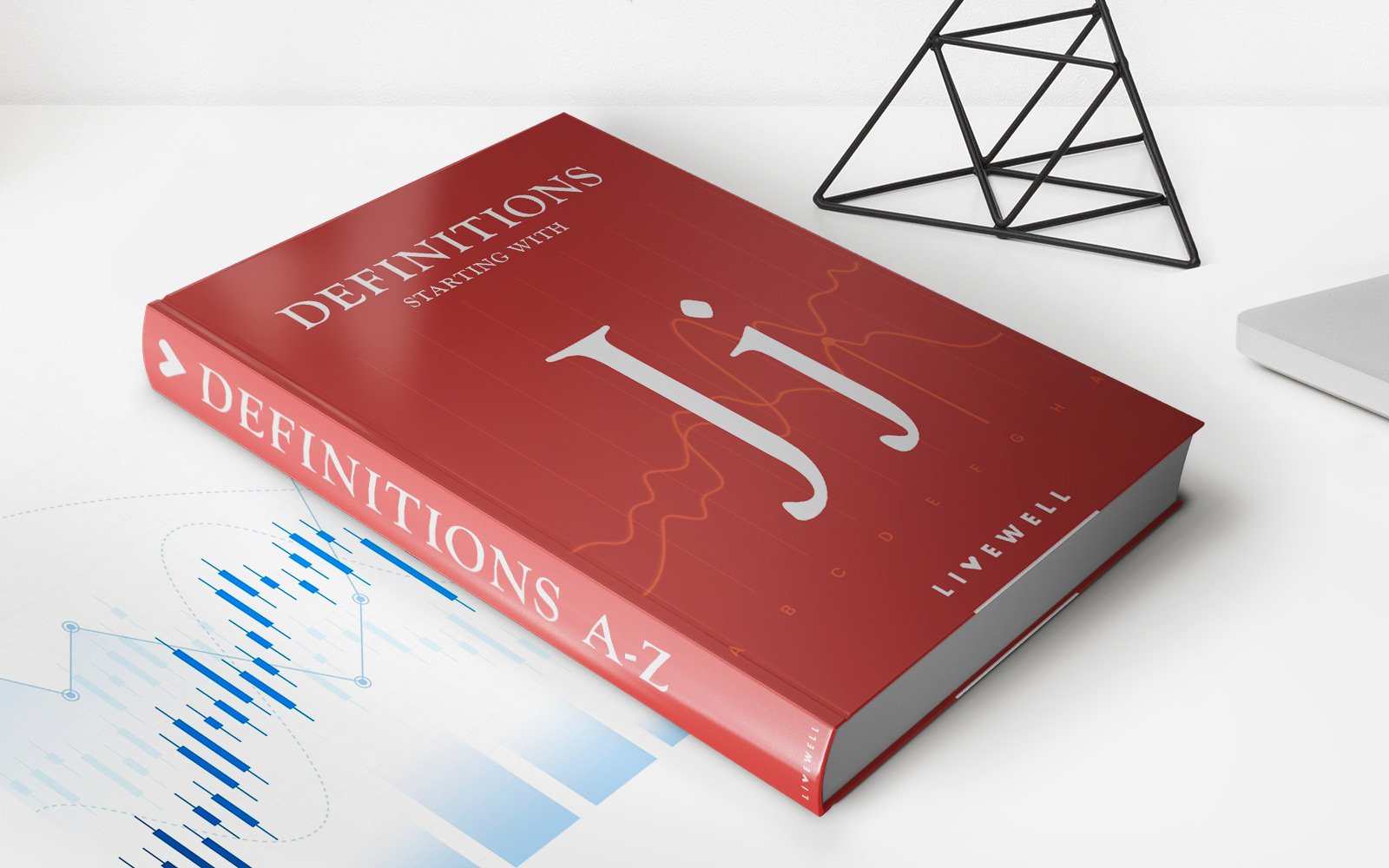

Finance
What Is MEC In Insurance
Published: November 24, 2023
Learn about MEC in insurance and its significance in the world of finance. Gain insight into the role of MEC in financial planning and insurance policies.
(Many of the links in this article redirect to a specific reviewed product. Your purchase of these products through affiliate links helps to generate commission for LiveWell, at no extra cost. Learn more)
Table of Contents
Introduction
Welcome to the world of insurance, where risk management and protection go hand in hand. In the realm of insurance, there are various terms and concepts that may seem complex and daunting to the average person. One such term is MEC, which stands for Modified Endowment Contract.
MEC is an important concept in the insurance industry, particularly in relation to life insurance policies. It refers to a specific type of policy that has a different tax treatment compared to other life insurance policies. Understanding MEC is crucial for policyholders and insurance professionals alike, as it can have significant implications on the tax benefits and overall financial planning.
In this article, we will delve deeper into the world of MEC in insurance. We will explore its definition, importance, types, benefits, drawbacks, and key considerations. So, let’s unravel the mysteries of MEC and gain a comprehensive understanding of its implications in the world of insurance.
Definition of MEC
A Modified Endowment Contract (MEC) is a type of life insurance policy that fails to meet certain requirements set by the Internal Revenue Service (IRS). These requirements were implemented to distinguish between life insurance policies and investment vehicles. If a life insurance policy exceeds certain premium limits, it is classified as a MEC.
The premium limits for a MEC are defined by the IRS and are based on the amount of insurance coverage and the age of the insured. If the total premiums paid during the first seven years of the policy exceed these limits, the policy is considered a MEC. The tax laws around MECs were put in place to prevent the misuse of life insurance policies as tax shelters or investment tools.
When a policy is classified as a MEC, it affects the tax treatment of the policy. Specifically, the tax advantages that are typically associated with life insurance policies, such as tax-deferred growth and tax-free death benefits, are limited or modified for MECs.
It’s important to note that not all life insurance policies automatically become MECs. It depends on the premium payments and the structure of the policy. Policyholders need to be cautious and mindful of the premium limits to ensure that their policy remains classified as a traditional life insurance policy rather than a MEC.
Importance of MEC in Insurance
The concept of a Modified Endowment Contract (MEC) holds significant importance in the world of insurance, particularly for policyholders and insurance professionals. Understanding the implications of a MEC is crucial for making informed decisions about life insurance policies and maximizing the benefits they provide.
1. Tax Considerations: One of the primary reasons why MECs are important is their impact on the tax treatment of life insurance policies. Unlike traditional life insurance policies, the tax advantages associated with MECs are limited or modified. Policyholders need to be aware of the premium limits and structure their policies accordingly to avoid the risk of their policy being classified as a MEC and losing out on certain tax benefits.
2. Financial Planning: MECs play a crucial role in financial planning. The premium limits set by the IRS are designed to prevent policies from being used solely as investment vehicles or tax shelters. As a result, policyholders are encouraged to focus on the insurance aspect of their policy rather than just its investment potential. This ensures that the primary purpose of the policy is to provide protection and financial security to the beneficiaries.
3. Flexibility: Despite the limitations on tax benefits, MECs offer a certain level of flexibility that can be beneficial for policyholders. Unlike traditional life insurance policies, which have strict guidelines on premium payments and policy modifications, MECs allow for more flexibility in terms of premiums and policy adjustments. This can be advantageous for individuals who have fluctuating financial circumstances or who want more control over their policy.
4. Estate Planning: MECs can also play a role in estate planning. Since MECs have reduced tax advantages, policyholders may opt to utilize other estate planning tools, such as trusts, to pass wealth to their heirs. By understanding the implications of a MEC, policyholders can make informed decisions about how to structure their estate plan and ensure that their loved ones are provided for in the most tax-efficient manner.
5. Professional Guidance: In the realm of MECs, seeking the advice and guidance of insurance professionals becomes even more important. Insurance agents or financial advisors with expertise in MECs can help navigate the complexities of the tax code, premium limits, and policy structuring. They can assess individual financial goals and circumstances to recommend the most suitable life insurance policy that aligns with the unique needs of the policyholder.
In summary, understanding the implications of a Modified Endowment Contract (MEC) is essential for policyholders and insurance professionals alike. From tax considerations to financial planning and estate planning, the importance of MECs cannot be overlooked. By obtaining a deeper understanding of MECs, individuals can make informed decisions and optimize the benefits of their life insurance policies.
Types of MEC in Insurance
Modified Endowment Contracts (MECs) can be classified into different types based on their structure and premium payments. These types of MECs offer policyholders various options to align with their financial goals and circumstances. Understanding the different types of MECs can help individuals choose the most suitable policy for their needs.
1. Single Premium MEC: This type of MEC is funded by a single lump-sum premium payment. Policyholders who have a significant amount of cash or assets at their disposal may opt for a single premium MEC. By making a one-time payment, they can immediately enjoy the benefits of the policy, such as potential tax-deferred growth and a death benefit for their beneficiaries.
2. Flexible Premium MEC: In contrast to the single premium MEC, the flexible premium MEC allows policyholders to make multiple premium payments over the course of the policy. With this type of MEC, individuals have the flexibility to adjust their premium payments based on their financial situation and goals. This is particularly beneficial for those who want more control over their premium payments and the ability to adapt to changing circumstances.
3. Limited Pay MEC: A limited pay MEC is structured in a way that allows policyholders to pay premiums for a specific period. Once the premiums are paid in full, the policy remains in force with no further premium payments required. This type of MEC is suitable for individuals who want to have a specific timeline for premium payments and want to ensure that the policy remains in force for the desired duration.
4. Paid-Up MEC: A paid-up MEC is a policy in which the premiums have been paid in full. Once the policy has become paid-up, the policyholder no longer needs to make premium payments, and the policy remains in force until the death of the insured. This type of MEC provides peace of mind to policyholders, knowing that their policy is fully paid for and will continue to provide protection and potential benefits without any additional financial obligations.
5. Modified Universal Life MEC: Modified Universal Life (MUL) is a specific type of MEC that combines elements of universal life insurance with a modified structure to comply with the tax laws. MUL policies typically have more flexibility in premium payments and death benefit options compared to traditional MECs. They provide policyholders with the ability to adjust their coverage levels and premium payments to suit their changing needs.
It is important for individuals considering a MEC to consult with an insurance professional or financial advisor with expertise in MECs. They can provide guidance on the most suitable type of MEC based on an individual’s financial goals, risk tolerance, and unique circumstances.
Benefits of MEC in Insurance
While Modified Endowment Contracts (MECs) have certain limitations when it comes to tax advantages, there are still several benefits that policyholders can enjoy when considering MECs within their insurance plans. Understanding these benefits can help individuals make well-informed decisions about their life insurance policies.
1. Tax-Deferred Growth: Even though MECs have some restrictions on tax benefits, they still offer tax-deferred growth on the cash value within the policy. This means that policyholders do not have to pay taxes on the investment gains within the policy as long as the funds remain within the policy. This tax-deferred growth can help policyholders accumulate wealth over time in a more efficient manner.
2. Death Benefit: MECs continue to provide a death benefit to the policyholder’s beneficiaries upon their passing. The death benefit is generally received income-tax-free and can provide financial protection to loved ones, ensuring their financial security in a time of loss. This benefit can help cover funeral expenses, outstanding debts, and provide ongoing support for dependents.
3. Access to Cash Value: MECs allow policyholders to access the cash value within the policy through policy loans or withdrawals. Although there may be tax consequences and potential interest charges for policy loans, having access to the cash value can provide individuals with a source of liquidity in times of financial need or opportunities for investments or other expenses.
4. Asset Protection: In certain jurisdictions, MECs may offer asset protection benefits. Assets within a MEC can be shielded from creditors and lawsuit claims, providing a level of protection for policyholders. This can be particularly beneficial for individuals in professions with higher liability risks or those looking to safeguard their assets for future generations.
5. Long-Term Financial Planning: MECs can be used as a long-term financial planning tool. With their guaranteed death benefit, potential tax-deferred growth, and access to cash value, MECs provide individuals with a vehicle for building wealth, preserving assets, and passing on a financial legacy to beneficiaries. They can be incorporated into an overall financial plan to ensure long-term financial security and strategic estate planning.
6. Flexibility: MECs offer policyholders flexibility when it comes to premium payments and potential adjustments. While there are premium limits to consider, individuals have the opportunity to structure their premiums based on their financial situation and goals. This flexibility can be advantageous for those with changing income levels or specific financial objectives.
It is important to note that the benefits of MECs may vary depending on an individual’s financial situation, risk tolerance, and long-term goals. Consulting with a qualified insurance professional or financial advisor is recommended to determine the specific benefits and suitability of a MEC for each person’s unique circumstances.
Drawbacks of MEC in Insurance
While Modified Endowment Contracts (MECs) offer certain benefits, they also come with some drawbacks that individuals should be aware of before considering them as part of their insurance plans. Understanding these drawbacks can help policyholders make informed decisions and evaluate whether MECs align with their financial goals and circumstances.
1. Limited Tax Advantages: One of the main drawbacks of MECs is the limited tax advantages compared to traditional life insurance policies. Policyholders may not enjoy the same tax-deferred growth and tax-free death benefits that are typically associated with traditional policies. This limitation reduces the potential tax benefits and may impact the overall financial planning strategy.
2. Premium Limits: MECs have strict premium limits set by the Internal Revenue Service (IRS). If the premiums paid during the first seven years of the policy exceed these limits, the policy is classified as a MEC. This can be a disadvantage for individuals who have the financial ability to pay higher premiums and want to maximize their life insurance coverage or investment potential within the policy.
3. Potential Tax Consequences: With MECs, policyholders need to be mindful of potential tax consequences. Policy loans and withdrawals from the cash value of the MEC may be subject to taxes and potential penalties if certain conditions are not met. It is important to understand the tax implications of accessing the cash value within the policy and how it may affect the overall financial picture.
4. Complexity: MECs can be more complex to understand and navigate compared to traditional life insurance policies. Policyholders may need to carefully review and analyze the premium limits, tax implications, and other policy requirements to ensure compliance and optimize the benefits of the policy. This complexity may require the guidance of an insurance professional or financial advisor with expertise in MECs.
5. Potential Loss of Other Benefits: In some cases, policyholders who convert a traditional life insurance policy into a MEC may lose certain benefits or riders that were originally included in the policy. It’s important to evaluate the impact of converting a policy to a MEC and determine if any lost benefits outweigh the potential advantages of the MEC structure.
It’s crucial for individuals to weigh the advantages and disadvantages of MECs, taking into account their specific financial situation, goals, and risk tolerance. Consulting with an insurance professional or financial advisor who specializes in MECs can provide valuable insights and guidance when it comes to making an informed decision regarding a MEC.
Key Considerations for MEC in Insurance
When evaluating whether a Modified Endowment Contract (MEC) is the right choice for your insurance needs, there are several key considerations that should be taken into account. These considerations will help you assess the suitability of a MEC based on your financial goals, risk tolerance, and unique circumstances.
1. Tax Implications: Understand the tax implications of a MEC. While MECs offer some tax advantages, they also come with limitations compared to traditional life insurance policies. Assess how the tax-deferred growth and potential taxable events, such as policy loans and withdrawals, will affect your overall tax planning strategy.
2. Premium Payment Capacity: Evaluate your ability to meet the premium limits set by the IRS for MECs. Ensure that the premium payments required to maintain the policy align with your financial situation and goals. Consider the impact of any potential changes in income or financial circumstances on your ability to continue making premium payments.
3. Long-Term Financial Planning: Assess whether a MEC aligns with your long-term financial planning goals. Consider how the policy will fit into your overall financial strategy, including retirement planning, estate planning, and wealth accumulation objectives. Evaluate whether the benefits of a MEC outweigh the potential limitations for your specific needs.
4. Policy Flexibility: Determine the level of flexibility that a MEC offers in terms of premium adjustments, policy modifications, and access to the cash value. Assess whether the flexibility provided by the MEC structure is suitable for your changing financial circumstances and preferences.
5. Risk Tolerance: Evaluate your risk tolerance when considering a MEC. MECs may have limitations on the potential returns and growth within the policy compared to other investment vehicles. Consider your comfort level with the potential trade-off between lower potential growth and the stability and security provided by the death benefit and tax advantages.
6. Professional Advice: Seek guidance from an insurance professional or financial advisor who specializes in MECs. They can provide a comprehensive analysis of your financial situation and goals to determine if a MEC aligns with your needs. A qualified professional can also help you navigate the complexities of MECs, understand the policy details, and make an informed decision.
It is important to carefully consider these factors and consult with an advisor before making a decision regarding a MEC. Each individual’s financial situation is unique, and what may be suitable for one person may not be appropriate for another. By considering these key factors, you can make an informed decision that aligns with your financial goals and circumstances.
Conclusion
Modified Endowment Contracts (MECs) play a significant role in the realm of insurance, particularly in relation to life insurance policies. While they have certain limitations compared to traditional policies, understanding MECs is crucial for policyholders and insurance professionals alike to make informed decisions and optimize the benefits of their life insurance plans.
In this article, we explored the definition of MECs and their implications in the world of insurance. We discussed their importance in terms of tax considerations, financial planning, flexibility, estate planning, and the need for professional guidance. We also examined the different types of MECs, including single premium, flexible premium, limited pay, paid-up, and modified universal life MECs.
While MECs offer some benefits such as tax-deferred growth, death benefits, cash value access, asset protection, and long-term financial planning, they also come with drawbacks. These drawbacks include limited tax advantages, premium limits, potential tax consequences, complexity, and the potential loss of other benefits.
When considering a MEC, it is crucial to weigh these benefits and drawbacks and take into account key considerations. These considerations include tax implications, premium payment capacity, long-term financial planning, policy flexibility, risk tolerance, and seeking professional advice. By carefully assessing these factors, individuals can make informed decisions that align with their financial goals and circumstances.
In conclusion, understanding Modified Endowment Contracts (MECs) is essential for individuals navigating the complex world of insurance. By grasping the nuances of MECs, individuals can optimize the benefits and mitigate the limitations to create a comprehensive life insurance plan that provides financial protection and potential growth for themselves and their loved ones. Consultation with an insurance professional or financial advisor specializing in MECs is highly recommended to ensure that the chosen policy aligns with individual goals, preferences, and circumstances.














